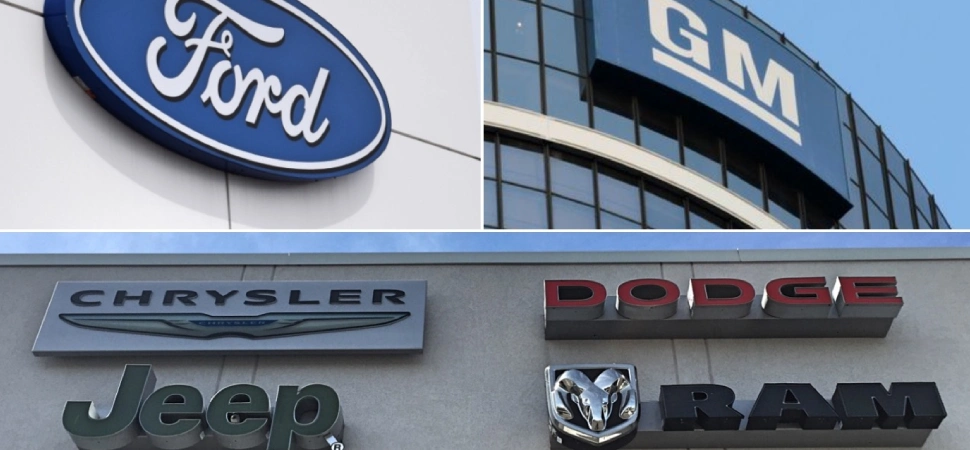Car company stocks aren't the type of stocks investors think of when discussing their next purchase, but the industry has been changing rapidly in recent years. Uber and Lyft, have changed the way cabs operate; the expansion of hybrids and self-driving cars is staying in the news, and trucks and SUVs are still the best-selling vehicles in the U.S.. Maybe it's time to take a fresh look at the auto industry?
History
The automobile industry was born in 1886 when Karl Benz patented his latest invention, the Benz automobile. By 1899, Benz had become the world's leading automaker. In the late 20th century, when Ford Motor Company developed a moving assembly line, large-scale production of automobiles began, and Americans began buying cars while the paint on them was still hot.
The largest automakers
Today, the largest automakers are Toyota, Volkswagen, Hyundai, General Motors, and Ford. In 2017, Toyota and Volkswagen produced more than 10 million cars, and more than 97 million cars were produced worldwide. Since 1997, automobile production has only declined in four years: 1998, 2001, 2008 и 2009. In 2009, the industry went through a recession when production fell more than 12% and the federal government had to bail out General Motors and Chrysler.
Auto stocks aren't just limited to these companies; they include stocks of auto parts stores and do-it-yourself repair products. Shares of AutoZone and O'Reilly, soared, as did shares of some online car and truck retailers like CarMax and TrueCar. Companies like Google are also working on self-driving cars, challenging electric car makers like Tesla and Toyota.
When investors talk about automaker stocks, they no longer think only of the Detroit Three: the industry is diverse and opportunities abound.

Prospectivity
Car companies have high capital and labor costs. It is expensive to produce cars, and workers have been demanding expanded rights and higher wages for years. High labor costs lead to low profit margins, so car companies with low sales will not be profitable stocks.
Here are some important factors to consider before buying an automaker's stock.
Year-over-year sales growth
Companies in all industries use year-over-year growth statistics to get a clearer picture of the health of their business. By focusing on a longer period of time, business owners can eliminate fluctuations caused by factors such as seasonal sales. For automotive companies, year-over-year sales growth is especially important because consumers mostly buy cars during the holidays or summer months. Instead of comparing August sales to September sales, consider comparing August 2017 sales to August 2018 sales. Look for car companies with long-term sales growth.
Expected P/E growth rate
Instead of simply dividing earnings per share by the stock price, the P/E ratio (PEG) takes into account expected earnings. Simply divide the P/E ratio by the expected earnings growth rate over a five-year period. Stocks with P/E ratios below 1 are considered undervalued, so it makes sense to buy stocks with earnings growth rates higher than the P/E ratio.
New model launch
New, flashy cars are not only the most profitable, but also the most attractive to American car enthusiasts. If new models come out every year, consumers will continually purchase new products, and manufacturers will be able to sell new cars at much higher prices than old cars. If automakers don't develop new models, watch out.
The next few years will see another structural shift in the auto industry when self-driving cars hit the roads. Here are a few companies that will likely not only survive this upheaval, but thrive. As Tesla's Ilon Musk is beginning to realize, building and maintaining cars is no easy task. Selling cars requires not only brilliant ideas, but also a business plan.

1. Advance Auto Parts
Advance Auto Parts is a great choice for car enthusiasts who build their own cars. Advance Auto Parts is known for its checkered flag logo, but it's also a company that makes good money: it has beaten earnings estimates in each of the last four quarters, and its annual net worth has been rising for the last four years.
2. Fiat Chrysler (FCAU)
Chrysler exited the bailout program and merged with Fiat to become a global automaker capable of competing with the world's largest car companies. Fiat Chrysler produced 4.6 million vehicles in 2017 and sells them under the Dodge, Alfa Romeo, Jeep, RAM and Maserati brands.
The RAM pickup truck was the third best-selling model in 2018 in the U.S., while the Jeep Wrangler and Grand Cherokee continue to be popular. FCAU's price-to-earnings ratio of 0.21 suggests that the stock is very affordable. Americans' love for trucks and SUVs shows no signs of cooling off, so Fiat Chrysler will continue to top the sales charts.
3. General Motors (GM)
General Motors is one of the oldest automakers in the United States. It is also the largest automaker in the United States, producing vehicles under the Buick, Cadillac, Chevrolet, and GMC brands. General Motors listed several vehicles on its 2018 best-seller list, including the Chevrolet Silverado (No. 2), Chevrolet Equinox (No. 8) and GMC Sierra (No. 18). The company is a leader in self-driving car research and recently invested in ride-sharing company Lyft.
Despite strong earnings, visionary management, and a dividend yield of 4.36%, GM stock remains undervalued. GM's price-to-earnings ratio of 0.36 is one of the highest on our list, and as auto sales continue to grow, it's worth adding this company to your portfolio.
4. Toyota Motor Corporation (TM)
Toyota sells more cars than any other company in the world, and the Corolla sales record will never be broken. Last year, five Toyota vehicles were among the best sellers: the Toyota RAV4 (#4), Camry (#7), Corolla (#10), Tacoma (#14) and Honda (#15).
Even though Toyota's profits have grown for three consecutive years, the company's price-to-earnings (P/E) ratio is only 7.31. While there are no statistics on the Japanese automaker's future earnings growth, it's worth considering in any portfolio.




Comments